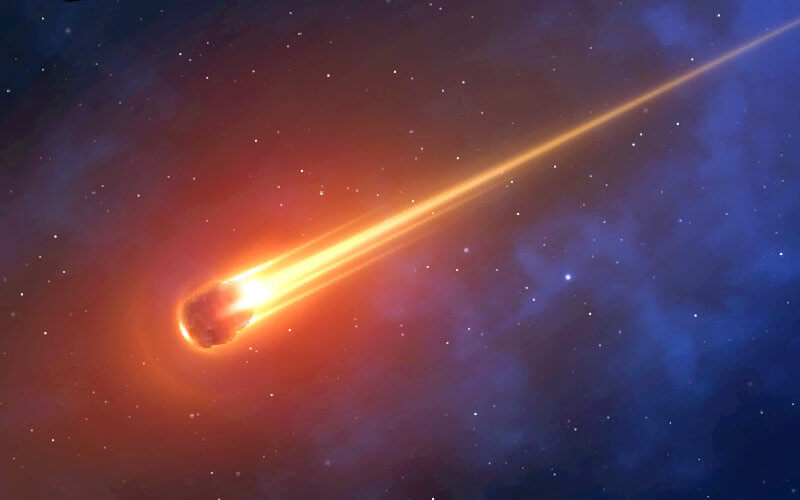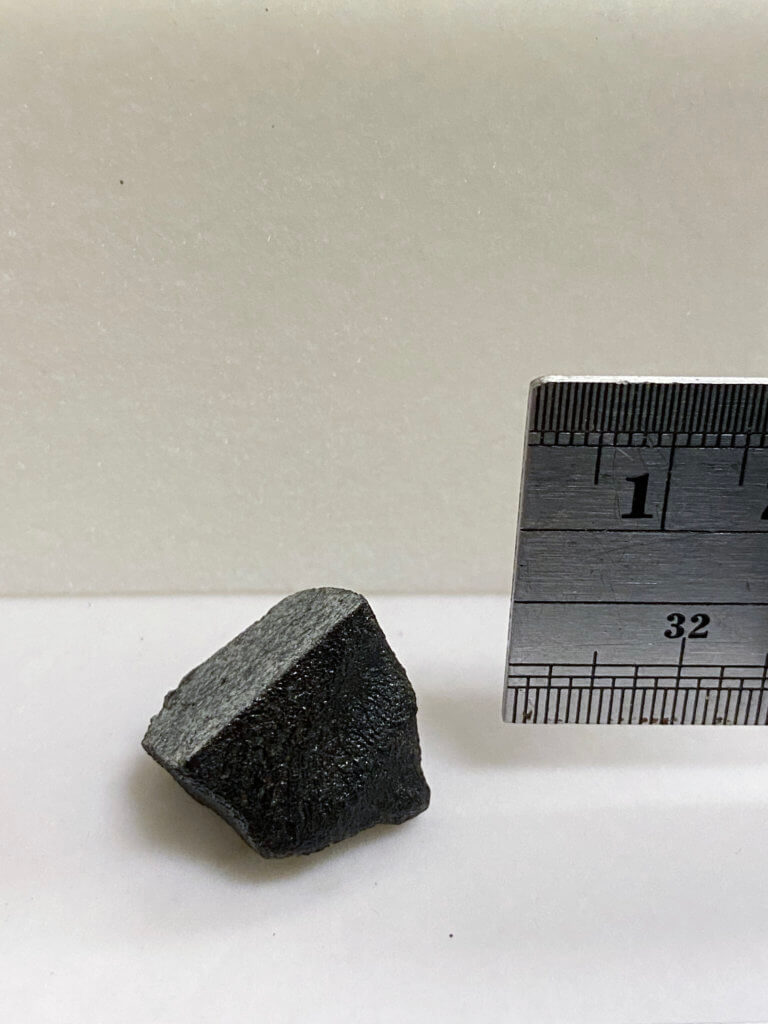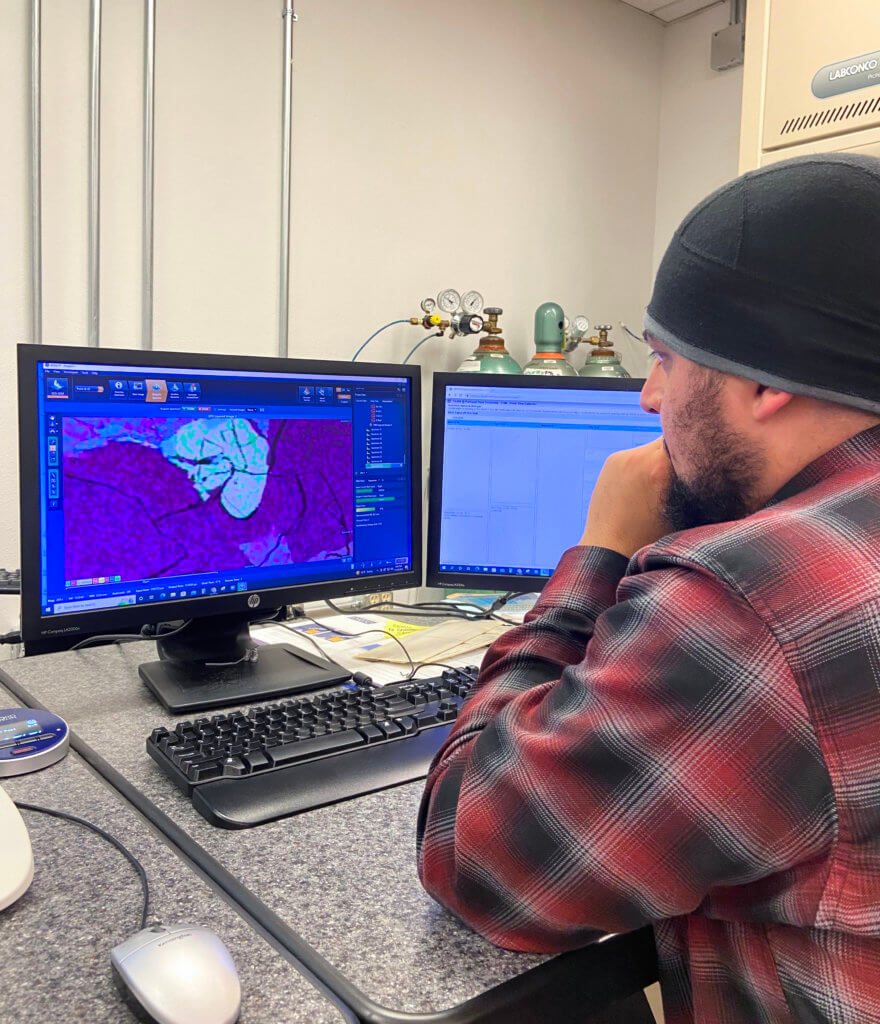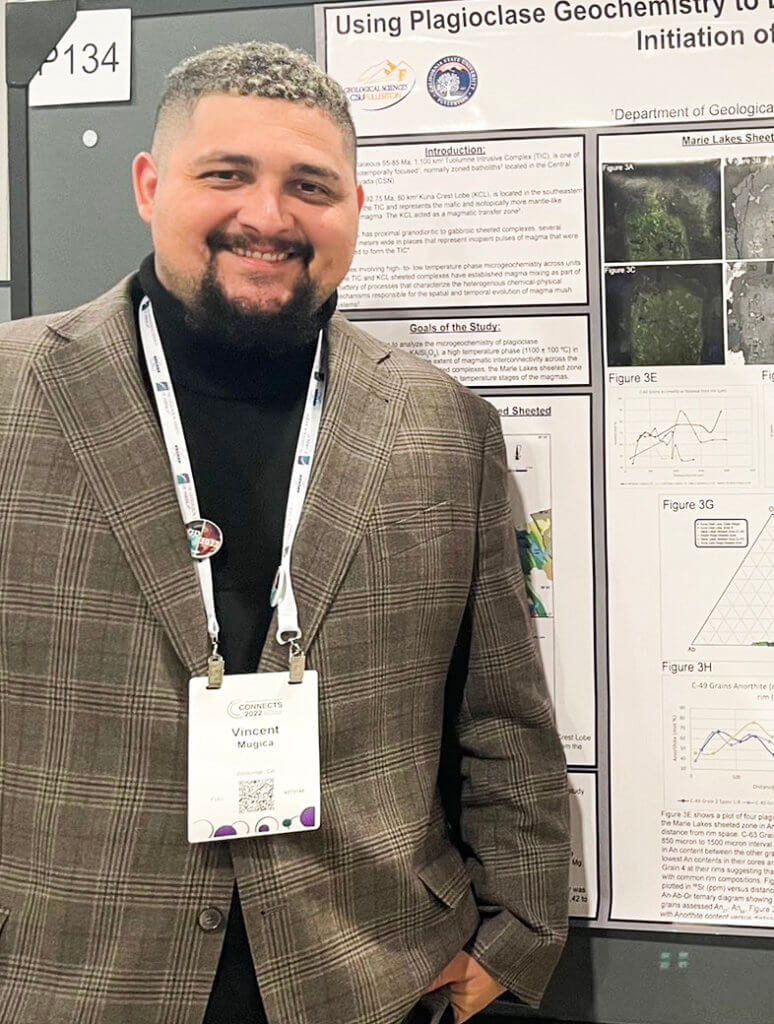
Geology major Vince Mugica has a sample of a Mars meteorite he studied on his desk at home.
Fascinated by rocks, specifically those that fall to Earth from other planets, Mugica used the undergraduate research skills he is learning to study the rare rock from the red planet.
Mugica performed a chemical analysis of the space rock, including its mineral composition, to classify the Martian meteorite discovered in Northwest Africa in 2020.
For the Cal State Fullerton senior, it was an emotional experience, to hold, and study, a piece of Mars.
“I never saw myself as a scientist or as someone who would be capable of conducting this type of work,” said Mugica, a first-generation college student. “It was an empowering moment to hold a rare Martian meteorite in my hand. It strengthened my resolve in what I’m capable of doing. This project was a dream come true.”

Described as a “stone with shiny, black fusion crust with melt veins visible,” the meteorite’s official name is Northwest Africa 15497, given by the Meteoritical Society’s Nomenclature Committee. The committee is responsible for establishing guidelines for the naming of new meteorites, usually named after the location where they are found.
There are only 347 confirmed Martian meteorites in scientific and private collections to date, according to the Meteoritical Society’s Meteoritical Bulletin.
The meteorite Mugica classified is a basaltic shergottite like basaltic rock on Earth. Shergottites are the most common Martian meteorites found in the hot deserts of Northwest Africa, he said.

“Studying Martian meteorites allows me to investigate igneous processes on the planet and how those processes compare to Earth,” Mugica said. “Meteorites can help us put constraints on the formation and evolution of planetary bodies throughout our solar system.”
Mugica examined a small sample of the meteorite, which weighs under a pound and is from a private collection.
While Mugica didn’t conduct an age analysis on the sample, shergottites have crystallization ages ranging from 165 million years to 2.4 billion years, he added.
Hands-On Geology Research
Mugica used his training in optical petrography and geochemical data analysis, under the mentorship of Valbone “Vali” Memeti, associate professor of geological sciences, to classify the ancient rock.
He collaborated with doctoral student Daniel Sheikh at Portland State University who studies lunar meteorites. Under Sheikh’s supervision, he conducted his research in November at the university’s Cascadia Meteorite Laboratory.

Mugica will present his meteorite research at the March 2023 Lunar and Planetary Science Conference in Texas, which features the latest research in planetary science.
With Memeti, he is currently working on research related to Earth’s igneous processes and volcano magma plumbing systems.
“Shergottites like NWA 15497 are the most common type of Martian meteorite and help geologists understand the evolution of Mars’s magma plumbing systems,” he said.
For his senior thesis, Mugica conducted mineral scale geochemical analyses on the mineral plagioclase in rocks from Yosemite National Park to determine the underground magma source for these rocks.
“A lot of meteorite rocks are chunks of old planets and of magmatic origin,” Memeti said. “For Vince, it was a good experience to learn about how magmatic rocks work on Earth and are studied — and apply similar methods to do research on meteorites.”
Mugica, who plans to graduate in May, shared that his interest in space rocks and planetary science has just begun. He is applying to graduate schools to study meteorites.
“Investigating the magmatic and volcanic processes of Mars through NWA 15497 is the most exciting thing I’ve ever done,” he said.